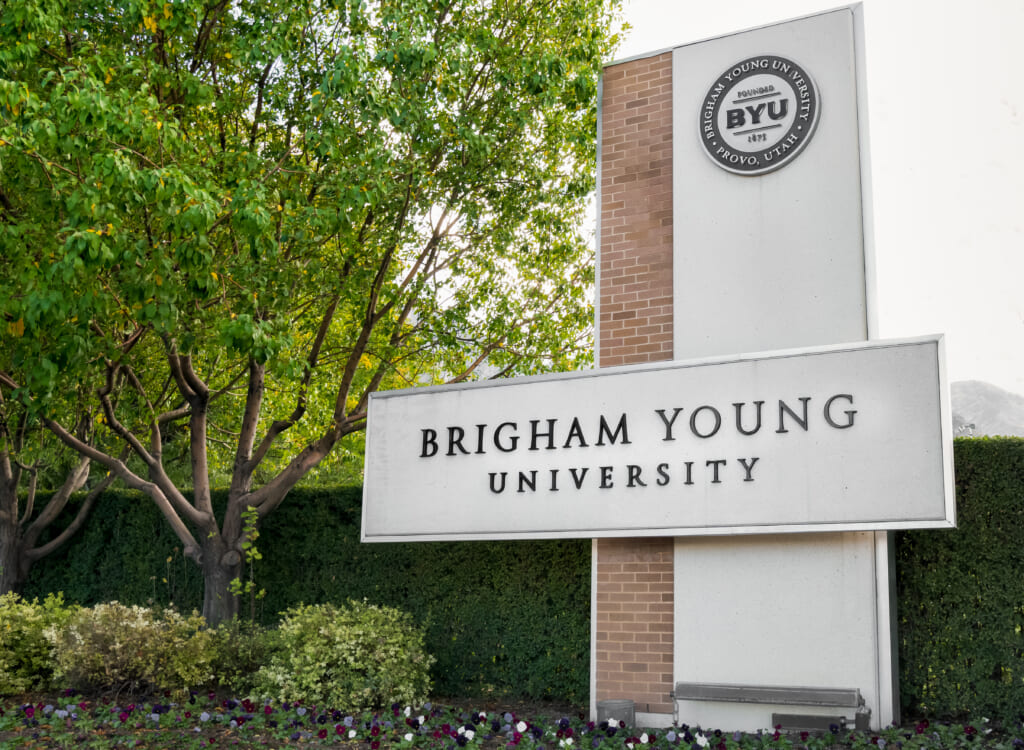BYU’s Black Menaces ask thoughtful, cringey questions on their white Utah campus and push to go national
The five students post videos showing them interviewing classmates, most of them white, about race and identity.
Top 3 playlist
Several Brigham Young University Black students known as the Black Menaces have been documenting their experiences on the predominantly white campus and sharing them on social media. Now they’re expanding to other colleges across the nation, Inside Higher Ed reports.
The five friends post videos on their group’s TikTok account showing them interviewing classmates, who are mostly white students, about race and identity. The account was created in February and has since gained nearly 726,000 followers and nearly 29 million likes.
University of Michigan assistant professor Charles H.F. Davis told Inside Higher Ed that Black Menaces’ reliance on TikTok is reminiscent of the modern forms of media that earlier generations of Black American activists — abolitionists, for instance — used to raise awareness and push for change. Today, he noted, the technology allows the group to reach a vast audience. “The scale of it is so much more significant,” he said. “More people have access. More people are part of the conversation.”

It is essential, he stressed, that white people participate in the conversation. “One thing we know for sure is the work of racial equity must include and has included white people,” Davis said. “Those who benefit from these systems of power and oppression have to be deeply involved in the dismantling of that.”
The Black Menaces announced in a recent TikTok video that they are on a mission to establish a chapter at every predominantly white college campus in the country.
“For so long, non-BIPOC people have been speaking on behalf of BIPOC people,” said Sebastian Stewart-Johnson, a junior at Brigham Young and one of the founders of the Black Menaces, Inside Higher Ed reports. “And now we’re able to take the leadership aspect and role and have our own voices amplified about the things that directly are affecting us.”
Since the announcement, students on at least 70 campuses have expressed interest in starting a chapter. In fact,10 chapters have already been started, including at San Francisco State University, according to Inside Higher Ed.
Chapter member and SFSU senior Simone Brown said the videos show that her campus is not the liberal bastion on issues surrounding social justice that many might perceive it to be. “It’s definitely helped me step out of my comfort zone, having more deep discussions with people and dismantling stigmas,” she said.
Stewart-Johnson has a big vision for Black Menaces and the chapters figure prominently in it. “Together we can be a coalition of people who push for the betterment and empowerment of marginalized communities, where we are in every single state across the country, and if we need to, overnight, we can protest or rally or petition for something that is greater than any of us individually,” he said. “To me, that is the most exciting thing.”
According to Inside Higher Ed, Black students at Brigham Young University were less than 1 percent of the student body in fall 2021. The school made national headlines recently when Duke volleyball players were subjected to racial slurs during a match at BYU, theGrio reported, citing the Associated Press.
One of the students, Rachel Richardson, said in a statement posted to her Twitter account that officials onsite failed to adequately address the situation during the game and immediately after the match.
The BYU athletic department released an apology and banned the fan — who is not a student, it noted — from future games.
Founding Black Menaces member Kylee Shepherd, a senior, said she wants potential BYU students to “feel comfortable and to feel like they have a space there and that that space they’re taking up isn’t a burden on anyone.”
The group’s name, she said, was coined after Stewart-Johnson playfully referred to his younger brother as a menace. “Everyone who has ever been anything, in the civil rights movement and all of that, was a menace to society,” she said.
TheGrio is FREE on your TV via Apple TV, Amazon Fire, Roku and Android TV. Also, please download theGrio mobile apps today!


